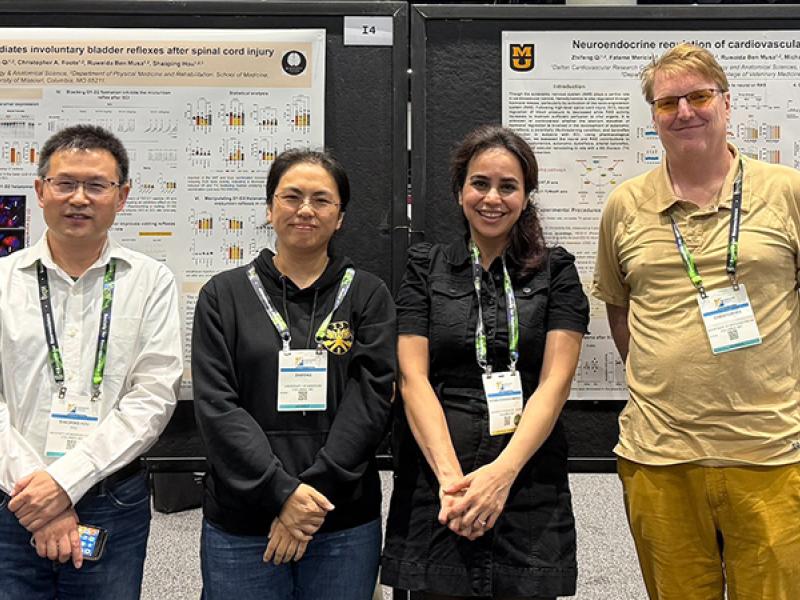
A University of Missouri researcher will receive more than $2.3 million from the National Heart, Lung, and Blood Institute (NHLBI) at the National Institutes of Health (NIH) to investigate the role neurons play in regulating blood pressure.
High blood pressure is a high-risk factor for stroke, cardiovascular disease and kidney failure. Primary hypertension is the most common form, and it’s associated with hyperactivity of the hypothalamic pituitary adrenal (HPA) axis, which is the primary interaction between the brain, the pituitary and adrenal glands. During stress, the HPA produces neurons that contain corticotrophin-releasing hormone (CRH), which researchers believe may play a role in increasing blood pressure.
“We hope to determine the role these neurons play in regulating blood pressure,” said principal investigator De-Pei Li, MD, associate professor of medicine. “We expect our studies to provide new information about the neuronal mechanisms underlying high blood pressure and strategies to reduce those impacts.”
In a pilot study, Li found increased activity of the CRH neurons caused hypertension in rats, and selective inhibition or ablation of those neurons decreased arterial blood pressure. This grant aims to determine how CRH neurons interact with the neurons that affect blood vessel constriction, with the hope that this knowledge could lead to treatments that combat stress-induced hypertension.
“If we can target the potential neuronal link between hypertension and chronic stress, we could use a CRH receptor antagonist to decrease blood pressure in patients suffering from chronic stress-related hypertension,” Li said. “We believe this new approach to treating hypertension holds great promise.”
This NHLBI grant runs through July 2025.





